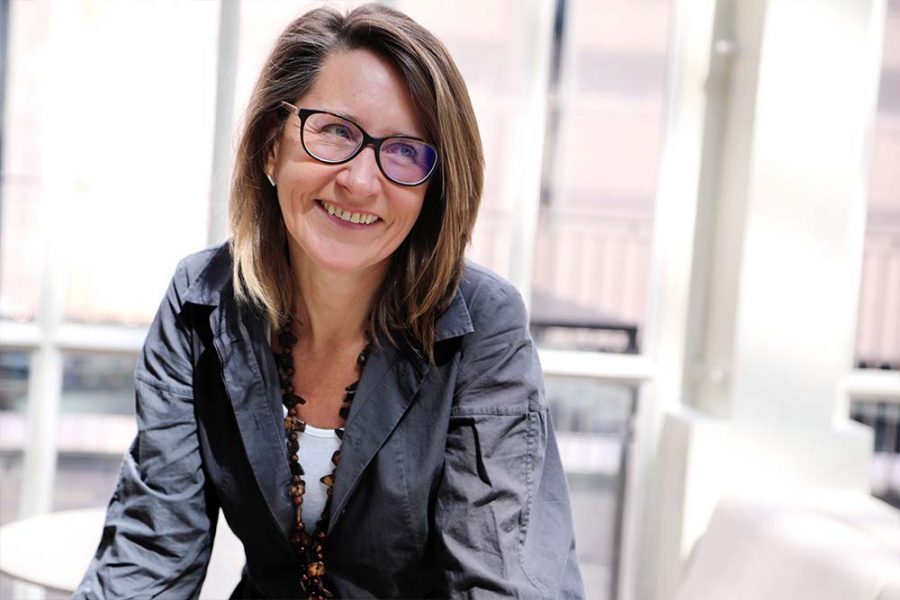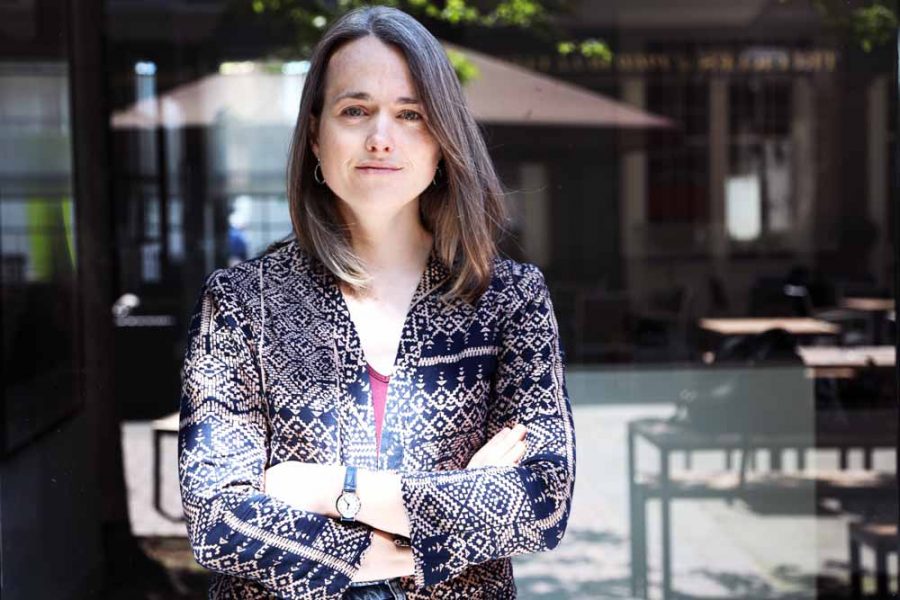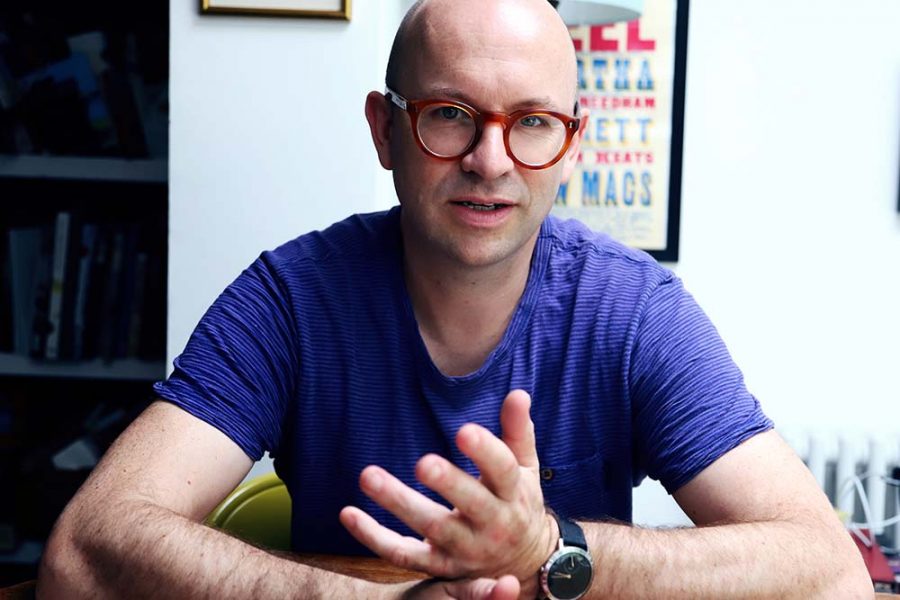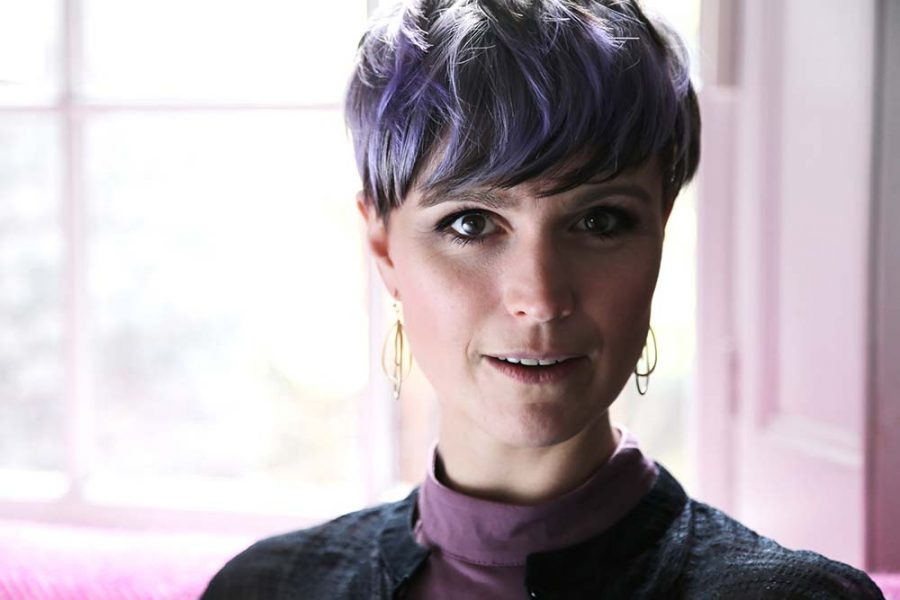A Wigmore Tale: John Gilhooly

August 2015
Words by
Emer Nestor
Photos by
Frances Marshall
Du holde Kunst, in wieviel grauen Stunden, Wo mich des Lebens wilder Kreis umstrickt, Hast du mein Herz zu warmer Lieb entzunden, Hast mich in eine beßre Welt entrückt.
(O sweet art, in how many a grey hour, when I am caught in life’s tempestuous round, have you kindled my heart to loving warmth, and borne me away to a better world.)
— An die Musik (To Music), Schubert (D 547, 1817)
Since joining the ranks of Wigmore Hall as its director, Limerick-born John Gilhooly OBE is responsible for transforming the much-loved chamber venue. As a classically trained singer and former graduate of University College Dublin, Gilhooly’s path to Wigmore has been an interesting one — a journey that he happily shares with Final Note.
I learnt a great deal from all my teachers, and a photograph of Dr Veronica Dunne sits proudly in my office."

You studied singing with the legendary Dr Veronica Dunne — what did you learn from your lessons with her?
I learnt a great deal from all my teachers, and a photograph of Dr Veronica Dunne sits proudly in my office. My first teacher Jean Holmes at the Limerick School of Music took me on when my voice broke around the age of 14, instilling in me a love of music and a strong technique. Eventually I auditioned for Veronica Dunne when I moved to Dublin in 1991 as a University College Dublin undergraduate. I still remember the audition. It was a warm, early September morning in Veronica’s large room overlooking the gardens of the National Concert Hall, and her dog was present. I sang one half of the aria ‘Un’aura amorosa’ from Così fan tutte before she stopped me. I assumed I was about to be rejected. She said: “You can ****ing sing. I think we’ll find you a half scholarship. And you must cycle in from UCD to see me twice a week.”
I learnt so much from Veronica, not only about singing, but about passion for entrepreneurship. At that time she was in the process of setting up her own bursary, which still lives on in her own internationally acclaimed singing competition. Veronica was around 63 at that point, and I was in awe of her stamina. 24 years later she continues to teach almost daily at the Royal Irish Academy of Music, and I am still in awe. I need a great deal of stamina to do what I do, and Ronnie was, and continues to be, an inspiration.
Having read History and Political Science at University College Dublin, how did you become involved in the world of arts administration?
I was a tutor in what was then known as the Combined Departments of History at UCD, and was asked if I would like to work at O’Reilly Hall (the new concert/conference venue on campus). In fact, I was House Manager and Master of Ceremonies for the inaugural concert. Suzanne Murphy sang with the RTÉ Symphony Orchestra [now the RTÉ NSO], conducted by Proinnsías Ó Duinn. Albert Reynolds had been ousted the day before, but was still caretaker Taoiseach, and graciously turned up to perform the opening ceremony. I always remember with some admiration how he and his wife dealt with what must have been a very difficult situation for them. There have been many incidences where I have observed the perseverance and professionalism of others, and I always use these as examples to help me in my life.
Tell us about the path that led you to Wigmore Hall.
I moved from Dublin to Harrogate International Centre in 1997, and was there for over 2 years working in general event and artistic management. In 1999 I was invited to work on the ExCel Centre project when it was a building site at the Royal Victoria Docks. Working on this £300 million project was a huge learning curve, but I was very glad to be part of the Centre’s initial staff. I left the Excel Centre on the day it opened as I was appointed to Wigmore Hall as Executive Director, at that time working alongside William Lyne. 15 years later I am still here as overall Director.
As Artistic Director, what is your programming process?
Programming begins around 3 to 5 years in advance. It’s a very complicated jigsaw and I have up to 1000 programmes, or future concerts, in my mind at any one time. I start by putting the pillars in place. I decide whether to focus on Shostakovich or Bartók, for example, or to programme the entire Schubert lieder, as we are doing over the next two seasons. Sometimes I programme around anniversaries. I also decide who should be in residence — we have Christian Gerhaher as ‘Singer in Residence’ in our 2015/16 season. I meet with artists over lunch or dinner; you can get to know somebody well within that 2 or 3 hours. The creative process sparks during, or shortly after, the meeting — the artist might have said something that inspires me, and ideas begin to formulate. A number of texts or emails are then exchanged, and we finally get to a residency. The most important thing is to keep Wigmore Hall as a relevant, creative hub at the forefront of the musical world. No two seasons should look the same. It is the Director’s job to lead, to advance, to encourage, to explore, to succeed, and sometimes to fail. You are only as good as your last concert or season.
As Director you have to be constantly on the lookout for up-and-coming young musicians, and to find the best moment and context to put them in front of the audience, and of course, the critics. It is very rewarding and exciting, and it is the artists and audience who make it so. I see it as my job to create the conditions for great music making. Once the concert begins at 7.30 it is over to the artists, and the public to either accept or reject them. More often than not they will succeed.
What elements are important to you in creating the best conditions for music making?
Personal relationships with artists are key to creating the best conditions for music making. The fact that we discuss and plan how a programme ties into the artist’s overall international profile is of great benefit, both to the artist and to the Hall. However, it is equally important to engage and keep a loyal audience base who show up and encourage artists to perform well. Without an extensive audience base we are nothing. Essential also are the backstage staff and House Managers who take care of the artists’ needs from the moment they arrive for rehearsal, and who help to create the conditions for Wigmore Hall to become an artist’s musical home. It can be as simple as a cup of tea made for them by the House Manager, or the piano tuner working with them to prepare the instrument exactly as they would like it for an evening concert.
Why is classical music so important to you?
For me, classical music expresses everything that is both good and not so good about the human condition and life itself. Every emotion, every trial and every triumph in life can somehow be expressed in music. Different composers speak to us in different ways. Bach is a colossus who touches heaven itself, and from there we delineate all that went before, and all that has come after.
Music can be like sport when presented to young people at the right time. Children can learn important life skills through music — communication, confidence building, teamwork, and so much more. We can give them the keys to a world they can unlock and revisit to the very end of their days. This is an extraordinary gift for any young person, or even for someone who comes to music later in life, and I wish that those pundits who constantly prophesy premature requiems for classical music would simply shut up. Music has never been more widely available or celebrated. Do you think that Haydn or Beethoven would ever have imagined that their works would be beamed across the world as they are in this digital era?
Classical music is far from being an endangered species. Advances in technology mean that we’re only at the very beginning of what can be achieved, but we need governments and educationalists everywhere to recognise the value of music as part of the core curriculum. There is a huge difference between elitism and quality. What I am talking about is not elitist in any sense; it’s an aspiration to make music available to everybody, whatever their background or nationality. The Internet makes this eminently possible.
How did the label Wigmore Hall Live come into being, and were you surprised by its rapid success?
Wigmore Hall Live came into being because we wanted to share as many wonderful concerts as possible with the widest possible audience. Over 100 of our concerts are broadcast each year by Radio 3 to a potential international audience of 40 million people (including EBU). We also have various partnerships in the US and further afield, but Wigmore Hall Live allowed us to create a memento of special evenings at the Hall that were not broadcast. Yes, I was very surprised by its rapid success, and had to learn the trade of a record executive very quickly.
The Gramophone ‘Label of the Year’ award of 2011 highlighted the importance of Wigmore Hall Liveinternationally, and also reminded us to invest even more in this important PR and marketing element of what we do.

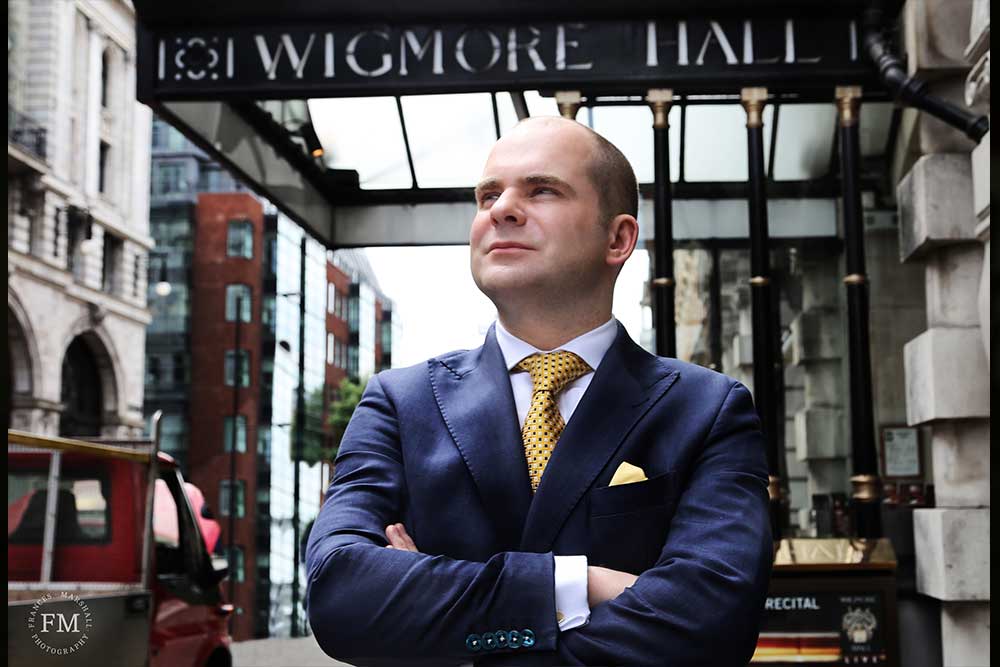


Nothing survives unless it’s constantly refreshed. New music has been at the core of Wigmore Hall since Busoni first stepped onto the stage in 1901."

How important is ‘new music’ to Wigmore?
Nothing survives unless it’s constantly refreshed. New music has been at the core of Wigmore Hall since Busoni first stepped onto the stage in 1901. Now, we commission 40 new works every year, making us one of the biggest commissioners in the musical world. It is our public service to both artists and composers, and is one of the most important things that we do. Our commissioning scheme has been made possible by the inspirational generosity of André Hoffmann, a descent Razumovsky who was Beethoven’s patron. Fondation Hoffmann has contributed over £1m to the Hall over the last 10 years, mainly towards new music.
What are your thoughts on the commercial pressure placed on young musicians of today?
It is very important that musicians should be allowed to grow into well-rounded artists, though this is often not at the forefront of record companies’ and agents’ minds. Eventually, artists become unstuck. Proper grounding, stamina and technique are essential to any career. It is a pity that very often those who go through crises early in their careers after going too quickly too soon, don’t always recover.
During the extensive refurbishment of the Hall in 2004, were you worried about its impact on the famous acoustic environs of the auditorium?
Yes, this was foremost in our minds. We engaged two acousticians, one second guessing the main acoustician at all times; it was an interesting relationship to manage. If the Hall’s management had destroyed these celebrated acoustics, we would have been run down Wigmore Street very quickly!
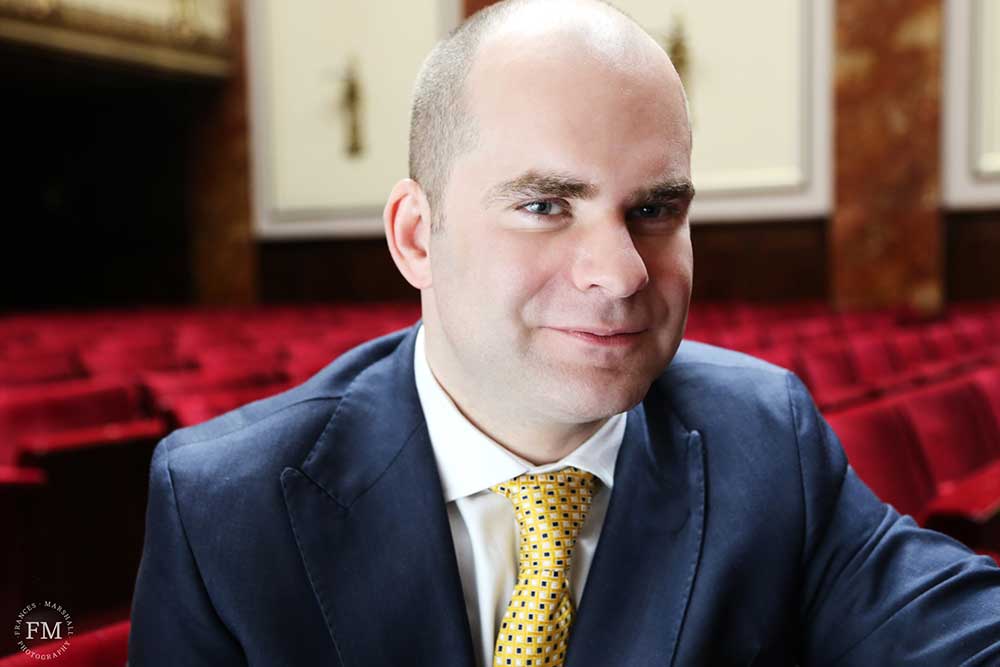


What are the new plans for the expansion of the Hall?
This summer we are spending £2 million on enhancing the digital infrastructure of the Hall, bringing Wigmore Hall into the digital world by enabling us to stream live and deferred concerts at any time. It is also a green initiative — we are double-glazing and reconfiguring the artist dressing rooms, which have not been touched for many years. We are also undergoing work to ensure that the temperature backstage matches that of the Auditorium; the difference in temperature can be a problem, especially for period ensembles.
Can you tell us about your role in the historic securing of the lease for Wigmore for the next 2 centuries?
I led the negotiations for the lease extension, and am glad to know that the Hall will be here for many generations to come. It was a tricky negotiation and certainly a learning curve, but I was greatly assisted by our current Chairman (but at the time a trustee), Aubrey Adams, who is an expert in property matters. It is wonderful to have this type of expertise at board level.
What have you done to attract new audiences, irrespective of age, into the Hall, and how important is social media within this movement?
We try to attract every age and demographic by every means possible. Print is still important, as is digital media. We have a lot of fun with our Twitter account — the number of followers has increased by 400% in 2 years.
You deal with a variety of people, with various temperaments and agendas, on a daily basis — in terms of diplomacy, what has your position at Wigmore taught you about musicians?
The most important lesson, which I don’t always succeed in applying, is to think before you type or talk. Musicians carry all of the stresses of normal life, housekeeping, mortgages, children, personal relationships, financial ups and downs, and yet also carry the responsibility of bringing us closer to music and to great composers night after night. Some handle this better than others — we all cope with things differently. It is my job to be there for the musicians, offering support but never judging them on personal issues. I don’t really think I can say more than that. Of course, I must judge them on their musical ability — that’s what I’m here for!
How does your own musical background inform your present administrative work?
From my earliest years the importance of quality was instilled. I was very fortunate in my earliest musical experiences. John Ruddock was a local promoter in Limerick during my childhood, and through the efforts of himself and his wife Doreen, we heard András Schiff, the Takács Quartet, Michael Collins, Imogen Cooper, Wolfgang Holzmair and even Angela Gheorghiu (before anybody knew who she was!). Chamber music and opera, as well as traditional Irish music, were central to my upbringing. So it’s an odd mix. The things I love most of all stem from my youth: Irish language, literature, opera, chamber music and song — and I am very proud that they all took root in Limerick. Some people decided to malign our city, but wonderful things happened and still happen there. Everything I do at the hall is about quality and quality control, and had I not heard music of the highest calibre at such an early age, I don’t think I would be in a position to make the musical judgements I do on a daily basis.
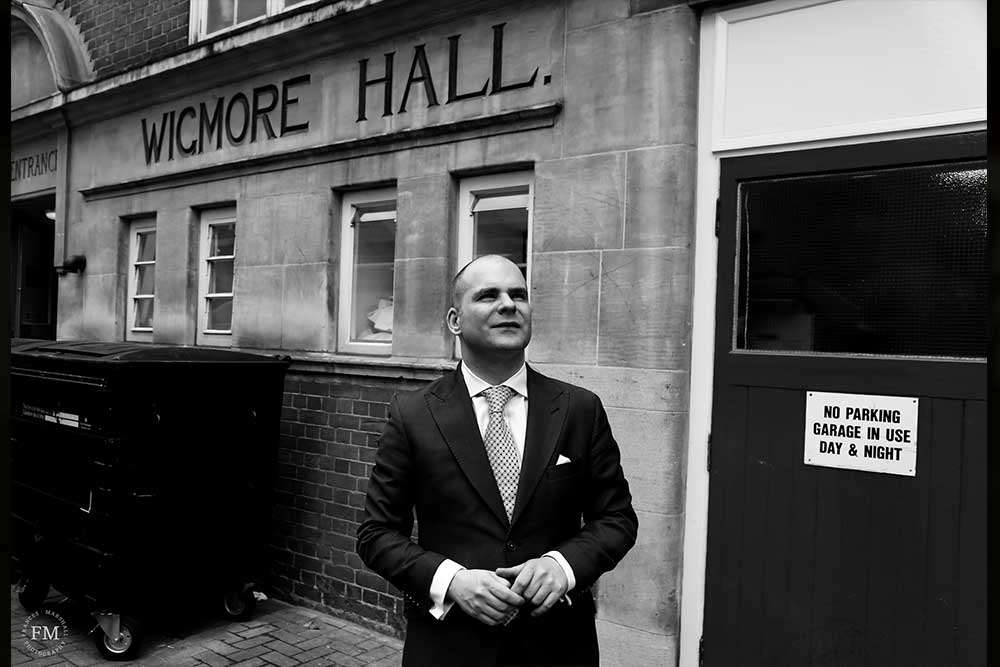

Do you sing much anymore?
Certainly not…except in the shower and my office!
With such a busy job, are you ever ‘off-duty’, and if so, what do you like to do to relax?
I am never really off-duty, although technically as I do this interview I am at the start of my holiday. The first week I spent working at home from the garden, answering emails and relaxing. August involves lots of travel including a Danube trip on behalf of the Hall, and personal holidays to France and Ireland. I will be keeping in constant touch with the Hall and Darius Weinberg, our Media Producer, due to the major refurbishment we are undergoing, so I’ll be appearing at various intervals to inspect progress, and keep it on time and budget.
Being Director of Wigmore Hall is more of a vocation than a job. I am constantly thinking about programming, but of course downtime and time with those close to us is very important. This morning I was able to plot my non-Wigmore schedule for the autumn, and I’m very pleased that it includes six trips to the Royal Opera House! Last year I didn’t plan well enough in advance, and missed out on some spectacular performances. Everybody’s diary is really busy, and London is full of wonderful things to see every night of the week.
Tell us about the Wigmore Hall String Quartet Competition, and Wigmore’s commitment to education?
The Wigmore Hall International String Quartet Competition takes place every three years. It’s one of the most prestigious quartet competitions in the world now, and gives young ensembles some wonderful opportunities for career development. The members of each quartet have to be under 35 years old, and the standard is always very high. However, it is not just about who goes home with the first prize. The competition is a week for the quartets to receive coaching and feedback from some of the best chamber musicians in the world, as well as meeting their peers from other countries to exchange ideas on performance, technique and repertoire. The 2015 competition was a great success, and very much a celebration of the art of the string quartet. During the week, we had seven previous competition entrants returning to Wigmore Hall to give recitals, many of which were also broadcast on BBC Radio 3.
This is, of course, not our only competition. We are equally proud of the Wigmore Hall/Kohn Foundation International Song Competition, which is generously supported by Sir Ralph Kohn. The next competition is in September this year, and we look forward to it very much.
The sense of exchange, collaboration and exploration which is at the heart of our string quartet competition is also central to our ongoing commitment to education and outreach work. Our work with young children is particularly inspiring. Generally younger children are actually more open to listening. Music can ignite a spark and affect a change in a young child’s life. That child who is four or five may someday pick up a violin and make it their career. You don’t know exactly what the social impact might be. Then there’s the whole thing of confidence building, being part of a team and the very act of listening and concentration. All those things help with learning, and those skills are transferable. Wigmore Hall’s Learning programme is not just aimed at young people. We put on pre-concert talks, lectures, study groups, group singing days, tours, classes, and much more. It’s about encouraging people of all ages, from all walks of life, to get the very most out of what we do here.
The 2015-2016 season boasts a wonderfully eclectic range of musicians from all musical spectrums — what are you most excited about?
I am usually most excited about the concert that is on that evening. My background is singing but I love the Haydn string quartets, Beethoven piano sonatas and hearing newly commissioned music by young composers. It is a great joy to have changed the direction of the Hall’s programming whilst retaining its core ethos. Anything by Schubert seems to move and inspire me and, although it sounds odd, I think of him as a personal friend!
What’s next for you John?
At the moment my plan is to enjoy the month of August as I work so intensely over the other 11 months of the year. As well as running Wigmore Hall, I am Chairman of the Royal Philharmonic Society and Chairman of Mahogany Opera Group, and am also involved in one or two local churches. So alongside my interest in opera, theatre and music of all kinds, I’m kept very busy! We only get one life. I wake up every morning hoping the day will be a happy one…and most are. We’re all hit by trials, losses, bereavements, curveballs, and troubles at some point, so we must really enjoy the good days, because no matter who you are, there’s going to be the odd bad day. But music brings us comfort at all times, and accompanies us at every stage of life.
All images displayed in this article are subject to copyright.
Share this article


